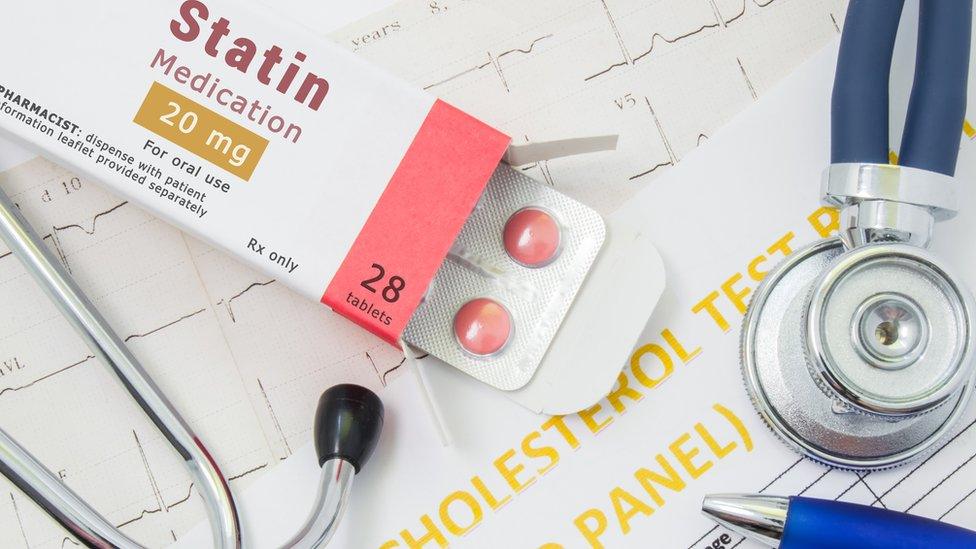Doctor 'cancer free' after Keele University statin test
- Published
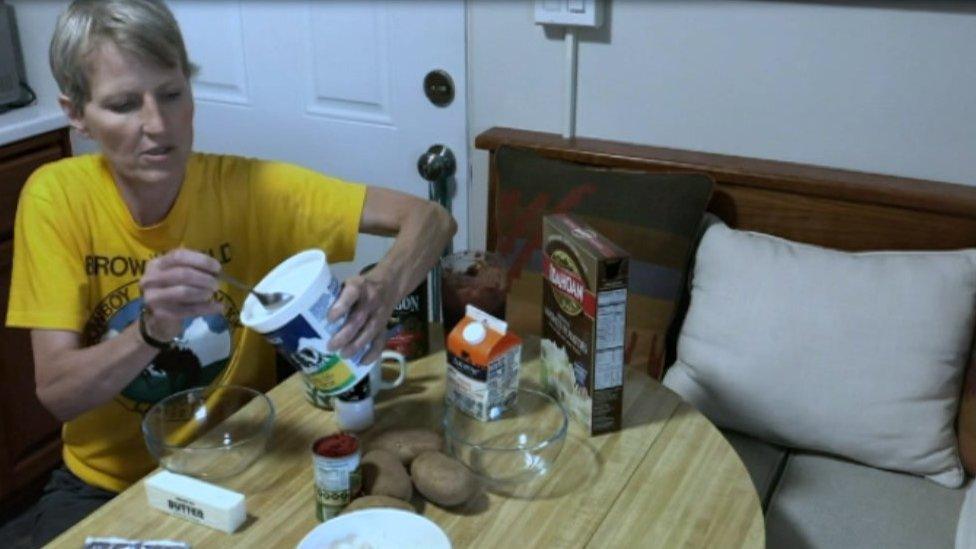
Dr Grace Gosar has been following a diet of potatoes, tomato paste and yoghurt during the statin trial
A doctor says she appears to be cancer free after taking a cholesterol-lowering statin and following a diet of potatoes, tomato paste and yoghurt.
Dr Grace Gosar said she had terminal cancer when she started the experiment devised by Dr Alan Richardson, based at Keele University, Staffordshire.
But tests over a year later showed no cancer cells present, Dr Gosar, from Laramie in Wyoming, said.
Dr Richardson said it was "exciting" but proper clinical trials were needed.
"As a physician, I know my disease progression and I thought that I would be in the ground by now," Dr Gosar said.
She was originally diagnosed with cancer in her ovaries, abdomen, bowel, pelvic cavity, liver and right diaphragm.
'Not one cancer cell'
After treatment in 2015, including a hysterectomy, it returned in her liver and she underwent further surgery.
In 2018, after contacting Dr Richardson, she started taking pitavastatin and in May last year doctors operated to remove bowel obstructions they suspected were caused by her cancer.
"When they did bowel surgery two weeks ago, not one cancer cell was found," she said.
"I cannot say that I am cured, but this might be something really interesting."
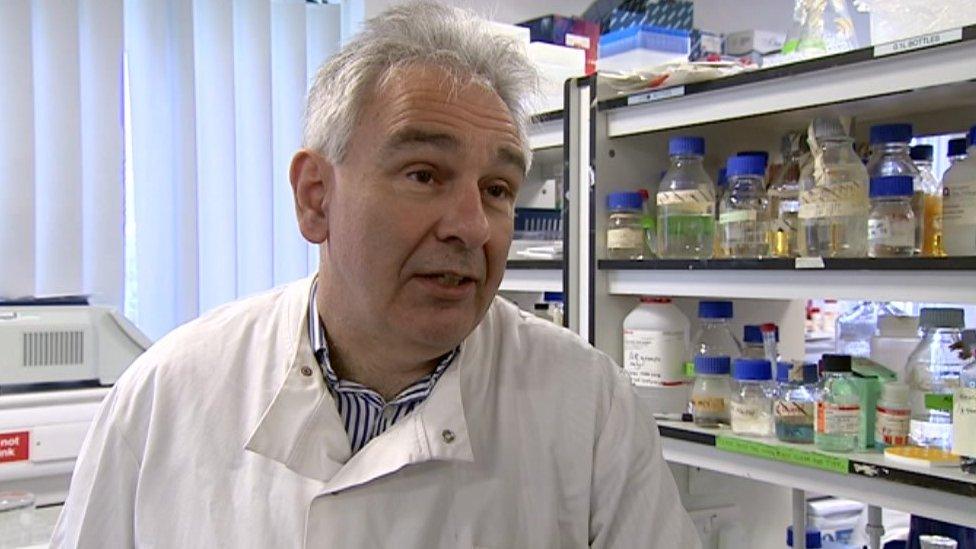
Dr Alan Richardson said proper clinical trials were needed
Dr Richardson said he has found pitavastatin kills cancer cells in animals.
While using the statin, Dr Gosar had to stick to the special diet because a fat found in many foods, called geranylgeraniol, can neutralise the medication's effect.

Analysis
Michele Paduano, BBC Midlands Today health correspondent
For safety reasons, patients experimenting with a drug that has not been through a clinical trial is incredibly rare.
However, as pitavastatin is a licensed drug for high cholesterol, it has already undergone rigorous safety checks and so Dr Gosar was able to work out a safe dose.
She is also a GP and has sufficient medical expertise to implement the treatment.
For pitavastatin to be used by the public, it would need to undergo trials to establish its safety and effectiveness.
This costs millions of pounds and so many promising cancer treatments never get developed by pharmaceutical companies.

To help her through the diet, biochemist Charlie Burgert, who is also Dr Gosar's nephew, travelled to Keele University from Wyoming to research what foods could be introduced to her diet.
"It's really cool to be doing something that not only adds to the knowledge of the treatment, but also helps a family member," Mr Burgert said.
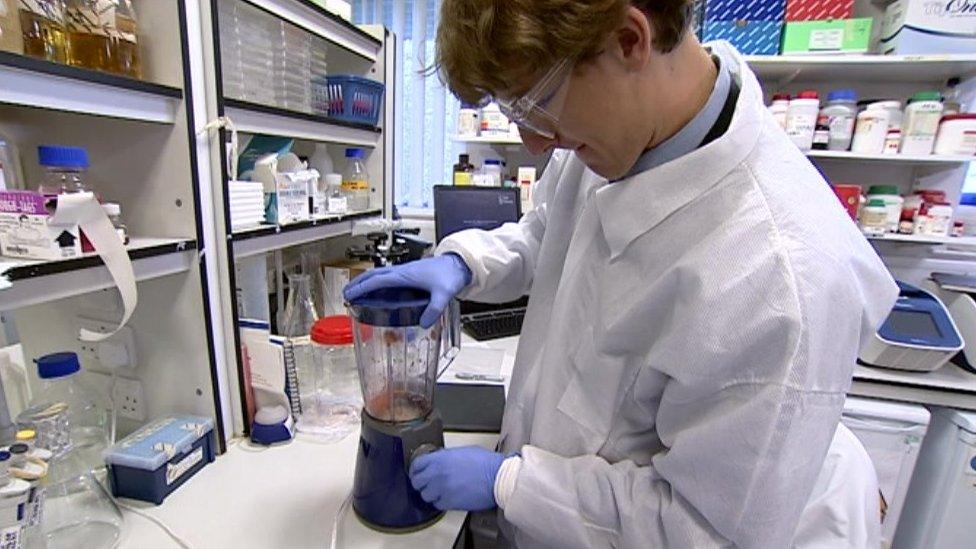
Biochemist Charlie Burgert has been testing different food that could be added to the diet
"What has happened to Grace Gosar is incredibly exciting, but we will only know if it works by conducting a proper clinical trial," Dr Richardson said, adding he was "desperate" to find a doctor to do so.

Follow BBC West Midlands on Facebook, external, on Twitter, external, and sign up for local news updates direct to your phone, external.
- Published15 April 2019
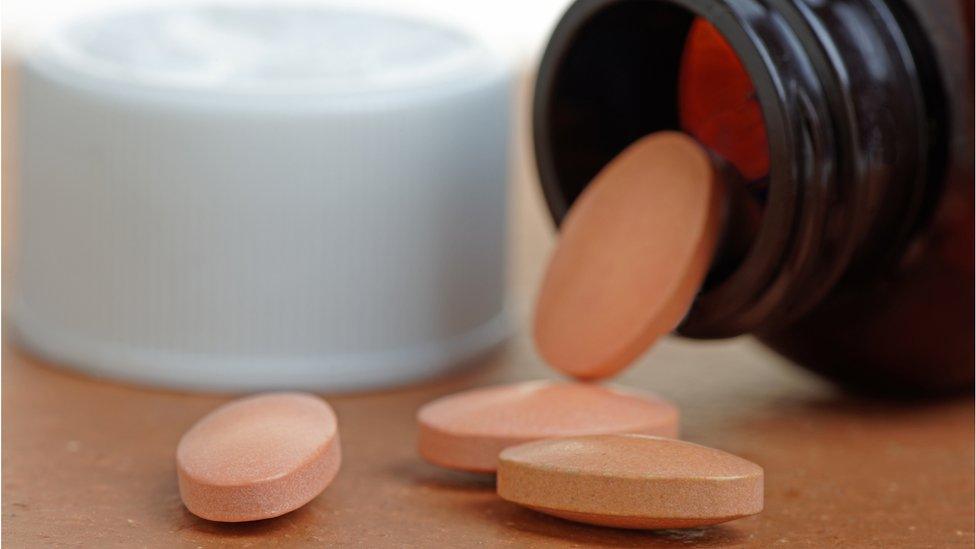
- Published1 February 2019
